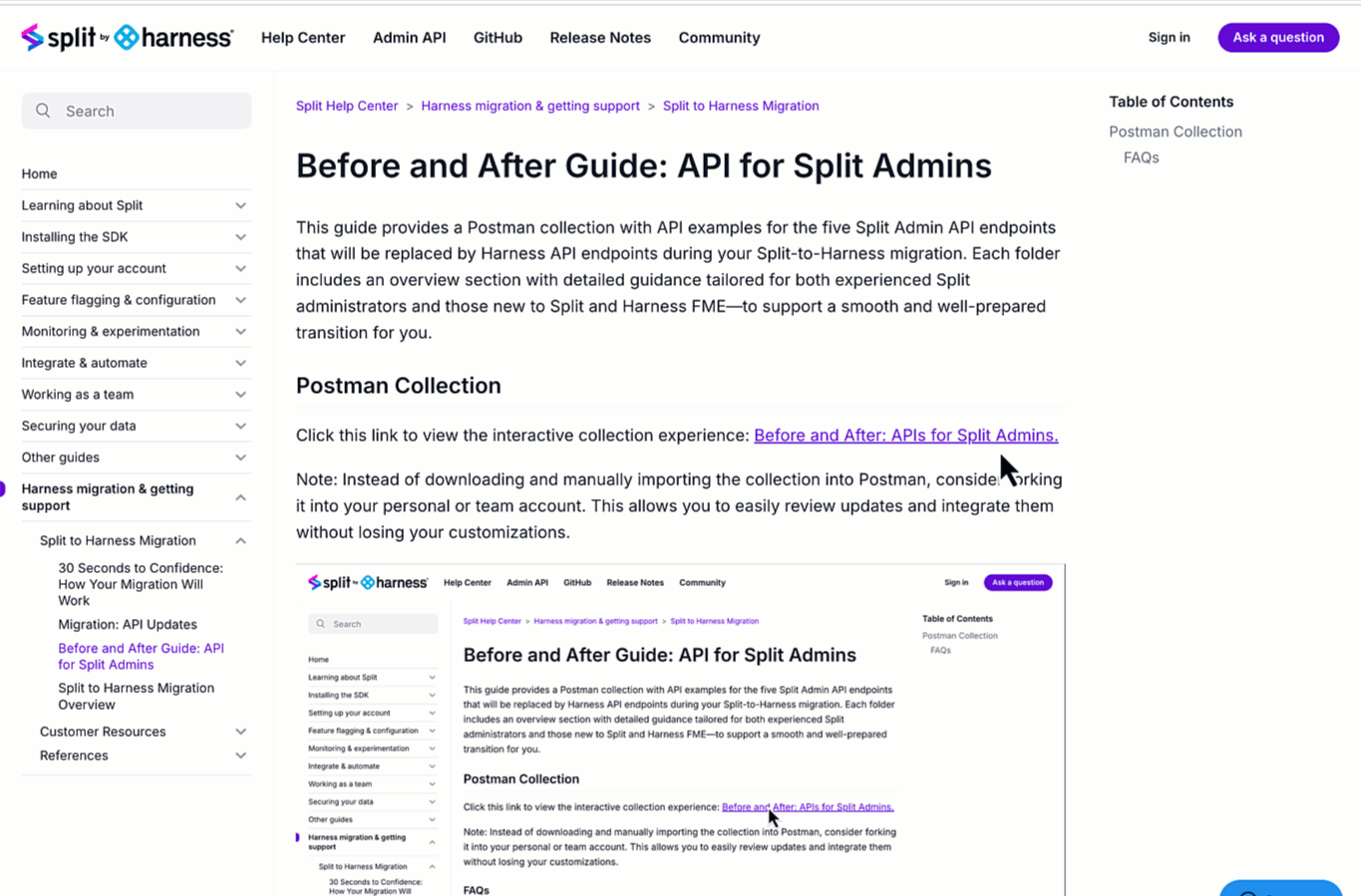Before and After Guide (API for Split Admins)
Overview
This guide provides a Postman collection with API examples for the five Split Admin API endpoints that will be replaced by Harness API endpoints during your Split-to-Harness migration.
Each folder includes an overview section with detailed guidance tailored for both experienced Split administrators and those new to Split and Harness FME—to support a smooth and well-prepared transition for you.
Authorization moves from Bearer Token to x-api-key
Historically, you have presented the API token as a bearer token with Split. With the Harness platform, API tokens must be in an x-api-key header instead. The Postman collection below was updated to reflect that on April 18th, 2025.
If you downloaded the Postman collection before April 18th, download an updated copy.
Postman Collection
You can view the interactive collection experience Before and After: APIs for Split Admins on Postman.
- Added Harness API Doc URLs to the "Documentation" for each Harness endpoint.
- Fixed base URLs for auth and resource group endpoints.

FAQs
Are the Harness Project identifier and Split Project Id (wsId) equivalent? Can I use either in the Split Admin API endpoints after migration?
No. Once you know the Harness Project identifier, you must obtain the Harness Project name and use that to look up the Split Project ID (wsId) by calling the GET /workspaces with the filter (by name) option to obtain thewsId. Once you have thewsId, you proceed as usual with the Split Admin API endpoints.
See the discussion of Retrieving wsId Using the Harness Project Name in the Projects > Harness (AFTER) section of the Postman collection for more details.
Will this collection be published on GitHub as well?
Yes. You can access this collection on GitHub as well as its revision history.
Will the existing Postman collection for Split Public API endpoints on GitHub be maintained going forward?
Yes. For clarity and consistency the variables in that collection will be updated soon to use the same variables as this collection. Later, we will update it to include the “after” endpoints seen here.